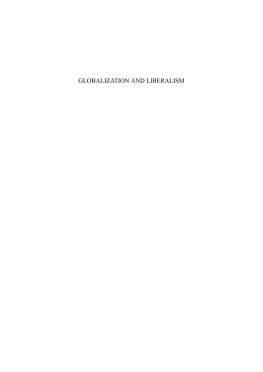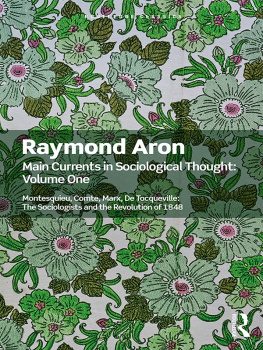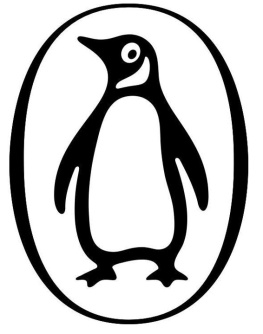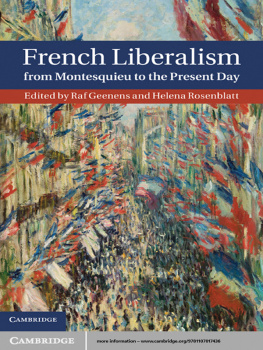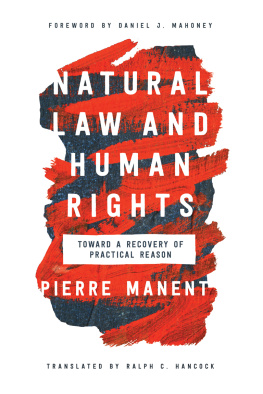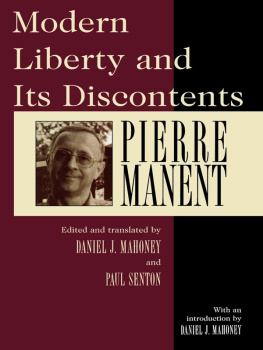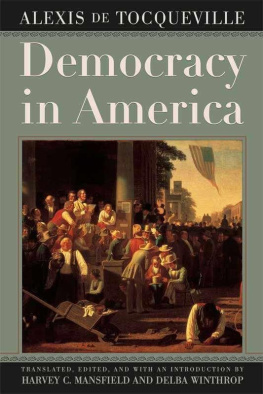GLOBALIZATION
and LIBERALISM
Montesquieu, Tocqueville, and Manent
TREVOR SHELLEY
University of Notre Dame Press
Notre Dame, Indiana
University of Notre Dame Press
Notre dame, Indiana 46556
Copyright 2020 by the University of Notre Dame
All Rights Reserved
Published in the United States of America
Library of Congress Cataloging-in-Publication Data
Library of Congress Control number: 2020932824
ISBN: 978-0-268-10729-1 (Hardback)
ISBN: 978-0-268-10732-1 (WebPdF)
ISBN: 978-0-268-10731-4 (Epub)
This e-Book was converted from the original source file by a third-party vendor. Readers who notice any formatting, textual, or readability issues are encouraged to contact the publisher at
For my parents
Tocqueville points out that in democratic times,
in contrast to aristocratic ages, familial relations become
more intimate and sweeter while the natural bond tightens.
As a most fortunate beneficiary in this regard,
I am full of gratitude for their continued love and support
for their natural generosity that has made so much possible.
CONTENTS
TWO. Montesquieu and the Ambivalence of the Heart:
On General and Particular Passions
THREE. Montesquieu and the Opening of the Universe:
The Earth, Commerce, and the Right of Nations
FOUR. Tocqueville and the Democratic Revolutions Reach:
Equalizing Conditions
FIVE. Tocqueville and Generalizing Ideas and Sentiments:
The Effectual Truth of le semblable
SIX. Manent and Western Political Development:
Humanity and a History of Political Forms
SEVEN. Manent and the City in Metamorphosis:
The Western Dynamic and American Dynamism
ACKNOWLEDGMENTS
Montesquieu rather provocatively opens his great work, The Spirit of the Laws, with the following epigraph from Ovids Metamorphoses (2.553): Prolem sine matre creatum (A work with no mother). It would be an egregious exaggeration to begin comparing my own work here with his masterpiece, but among the infinite things distinguishing (and elevating) his text from this work is the list of matres who inspired this humble creation. Among them are, first and foremost, the incomparable pedagogical parents with whom I had the fine fortune of studying political philosophy at Louisiana State University: James Stoner, Ellis Sandoz, and Cecil Eubanks. The differences and similarities among them, and their respective readings and teachings of great texts, have instilled fruitful tensions within my own soul. The influence of all three has found its way into this workindubitably for betterand whatever flaws are to be found herein are most certainly my own. Indeed, their positive intellectual influence shall remain with me for my lifes duration.
I am especially grateful to Daniel Mahoney, who read the entire manuscript and provided insightful suggestions and guidance in steering it toward publication. To my former peers from the political science department at Louisiana State University I have a debt of gratitude for the many wonderful discussions about politics and philosophy, and so too more recently to my colleagues at the new School of Civic and Economic Thought and Leadership at Arizona State University. Stephen Wrinn and the fine staff at University of Notre Dame Press, including my copy editor, Sheila Berg, made the publication process a pleasant, even pleasurable, one; more than enough to inspire a first-time author to want to repeat it anew in the future.
I should also like to thank four dear friends, Angelo Lupinetti, Aroop Bhattasali, Dr. Marc Ross, and Timothy Middlemiss, all of whom listened many times to my attempts at articulating what exactly I have been essaying to write herein and elsewhere. Though we may be geographically distant, we are ever close in spirit. Or, as once said by Montaigne, I know that the arms of friendship are long enough to reach from the one end of the world to the other.
Finally, I thank the woman who became my wife over the course of this project, morganne shelley, for encouragement and understanding on the final stretch of this homeward road: ! !
ONE
Introduction
The drive to the universal and homogeneous state remains the dominant ethical
ideal to which our contemporary society appeals for meaning in its activity.
George Grant, Technology and Empire
Even if one were to bring the locations together into one,
so that the city of the Megarians were fastened to that of
the Corinthians by walls, it would still not be a single city.
Aristotle, The Politics
The present appears to us riddled with paradox. Nostalgia and reactionary tendencies consume political opinion as much as measures of prosperity and progressive propensities impress it. And so, as the French say, les extrmes se touchentthe extremes touch one another. We attend altogether to our particular selves as we stretch our attention widely to the species in general, as all the while an impending sense of unity beckons.
However, the fault lines of recent politics display greater friction, and unease regarding the simple particularism of the individual and the universalism of humanity is growing. The world is neither as smooth nor as flat as was suggested not so long ago. Neither the I or the self nor the all or the everyone seem to satisfy the desire for unity. People are once again defining we as somewhere between the individual and humanity and seeking solidarity elsewhere along the continuum. That there is a we to politics somewhere between the I and the all is unmistakable, as theorists of varying perspectives admit. While often considered in policy terms as matters of immigration, exchange, and the like, on a deeper level the partisans of either side of Brexit, the Trump election, and related events represent different understandings of unityhow it may be quantified and qualified, as it were.
This question of what unifies people, how and who can be readily unified, and to what extent unification can be manifest has become especially charged in a world that is globalizinga word of simultaneously malleable and negligible meaning, so casually does it rest on all our lips and is uttered with ease, as though it were the most obvious fact of life. It is as complex a phenomenon as it is obscure. Whatever else globalization may be, it is most certainly an appeal to, and expression of, global unity, the underlying assumption being that it is perfectly natural for the peoples of the world to increasingly unifypolitically, economically, culturally, and otherwise.
For many years there has been a great deal of talk about the emergent unity of humanity in the West. Social scientists examine the world in terms of global values and assess global opinion. In considering this phenomenon of globalization, one is inclined to ask about its relationship to liberalism, and whether it is a natural development of liberal political philosophy and practical political liberalism or possibly at odds with it in some way.
There is a belief in the West that the conventions of liberal democracyor the institutions and political culture of liberalismare in fact most natural. The underlying contention is that the liberal regime best satisfies human needs and desires in general, if not in toto. To whatever extent liberal political philosophy is genuinely rooted in nature, the elements of liberalism are often considered the only defensible onesaccording to reason, or at least to public reason. One may object that this defense largely stands on the basis of a now-enduring set of liberal customs more than on continued coherent or rational justification. To speak somewhat more scientificallyto adopt the language of modern political sciencethe modern liberal regime is for many the sole legitimate form: it seems most successfully to meet and provide for the basic needs of all human beings. Its customs and conventions are argued to be the most conducive to satisfying the common, natural desires of man, universally, from security to liberty. However, in speaking of basic needs and universal satisfaction, critics wonder about liberalisms failure to cultivate higher elements of human nature, and its parasitic tendency to rely on moral resources that precede or transcend it.

